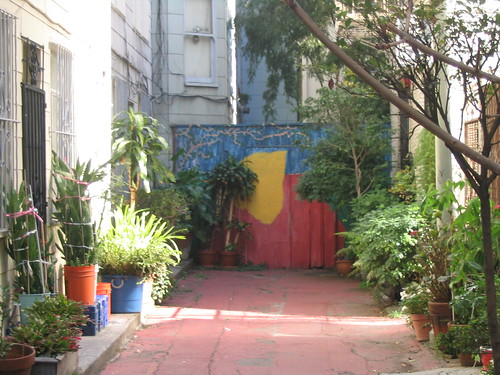 I found this Fast Company article titled, "Why Millennials Don't Want to Buy Stuff" interesting (it's not just Millennials doing this either). From the first paragraph we read, "Millennials seem to have some very different habits that have taken both established companies and small businesses by surprise. One of these is that Generation Y doesn't seem to enjoy purchasing things."
I found this Fast Company article titled, "Why Millennials Don't Want to Buy Stuff" interesting (it's not just Millennials doing this either). From the first paragraph we read, "Millennials seem to have some very different habits that have taken both established companies and small businesses by surprise. One of these is that Generation Y doesn't seem to enjoy purchasing things."
As the owner of a small garden shop business this kind of news can be quite disturbing, or liberating. We also read that, "The biggest insight we can glean from the death of ownership is about connection. This is the thing which is now scarce, because when we can easily acquire anything, the question becomes, 'What do we do with this?' The value now lies in the doing."
Last week I had a discussion with some folks on Facebook after I posted this,"Seems customers with the most gardening experience use the least amount of fertilizer, They've figured out the 'nature' of their garden". Someone said, "nice, but not good for business is it?" I believe my answer may be a way forward for those who see this new "non-ownership" mentality showing up around them.
Here is my answer, "what's happened is those successful gardeners we're in many cases taught their methods here. We showed them a way to grow better without the use of synthetic fertilizers. Now that they are successful the're more into gardening than ever, and as such are expanding their gardens or trying new varieties. So by saving them the time and money on unsustainable gardening (and unhappy gardeners), we have enthusiastic customers who come in time and time again."
How will your business or venture survive and thrive in this new "non-ownership" world. It's not just the Millennial generation that is doing this. I see it with many people who are tired of the responsibility and costs associated with the owning of objects. It's a trend I don't see abating any time soon. It's actually a huge plus for small garden businesses who see the positives of this. It's about the process of helping someone become a better gardener (the experience), not selling a bag of fertilizer (stuff) when they really don't need it.
